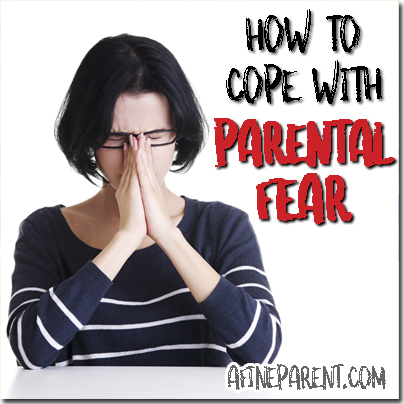 I am about to send a kid to college and become an “empty nester.” I have been asked frequently, mostly by parents with much younger children, “What does it feel like to be crossing the finish line?”
I am about to send a kid to college and become an “empty nester.” I have been asked frequently, mostly by parents with much younger children, “What does it feel like to be crossing the finish line?”
What does it feel like?
Well, it feels a lot like that first sleepless night at home with the baby, and it feels like letting them ride a bike around the block, alone. It feels like dropping them off at a brand-new school where they don’t know anyone, and it feels like handing over the car keys for the first time.
Parenthood has so many firsts, but nearing that “finish line,” I can safely say the feeling of every first is pretty much the same: anticipation, pride, happiness, hope and a little parental fear, all mixed together.
In other words, sending your kid to college is a lot like all the milestone moments you parent a child through, and let’s be real…It seems like, more than ever, parenthood is often fraught with an increasing array of anxiety, fear, educated guesses and risk analysis!
But, don’t worry. I have advice garnered by extensive research and some real life experiences to help you navigate and quell those parental fears and anxiety so you can enjoy more anticipation, joy and happiness — whether you just brought your bundle of joy home for the first time or are dropping your teen off at college.
In the Beginning: Babies and Parental Fear
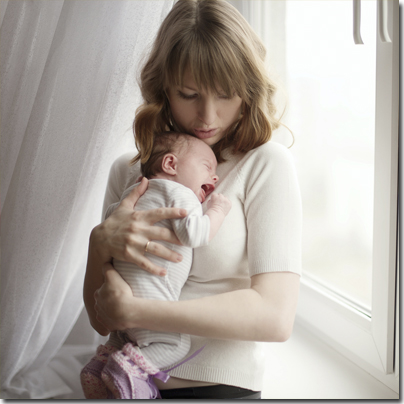 The common types of fears and anxieties that keep new parents up at night are pretty standard, and according to Parents Magazine, include things like: bonding with a new baby, being able to breastfeed effectively, correctly holding a baby and even being afraid of accidentally hurting the baby!
The common types of fears and anxieties that keep new parents up at night are pretty standard, and according to Parents Magazine, include things like: bonding with a new baby, being able to breastfeed effectively, correctly holding a baby and even being afraid of accidentally hurting the baby!
I went through some of these fears as a first-time mother and had the pediatrician and nurse-on-call on speed dial! I made several calls that first week asking all sorts of things from how the baby’s breathing sounded to what was the best sleeping position.
Often I was told that everything I was observing and doing was correct and normal. I found having that expert on the phone who gently listened to my concerns made all the difference in the world to quell my anxieties — as did the passing of time as I gained confidence, and the whole family started to get into a routine.
The key thing to remember with these types of fears is that they are normal, common and quickly expelled by getting expert advice, more education and leaning on other parents and caregivers for guidance.
School-age Children: Learning to Let Go a Little
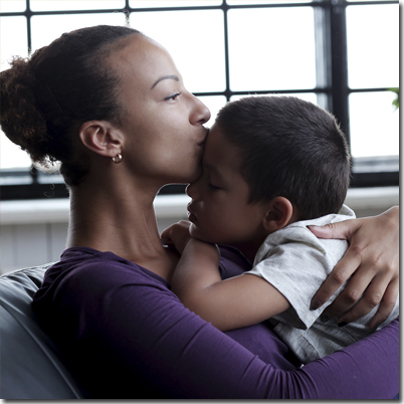 Developmentally, by the age of 5 or 6, children are learning how to become independent. They start to see themselves as separate from the adults around them.
Developmentally, by the age of 5 or 6, children are learning how to become independent. They start to see themselves as separate from the adults around them.
When children enter kindergarten and elementary school, they are away from parents and caregivers for extended periods of time. This is a time that some parents may fear they are “losing control” of their children’s environment, which is easier to define when they are younger.
It’s also easy to read the headlines in the news and see danger lurking around every corner. So, it’s understandable for some parents to start to develop the trait of becoming “overprotective” and end up as an unintentional helicopter parent.
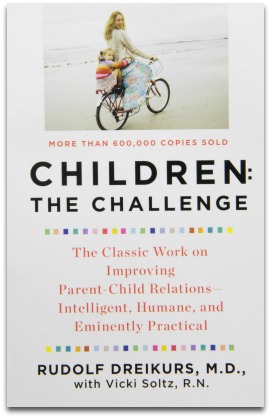 According to the book Children: the Challenge by Rudolf Dreikurs, overprotective parents are often scared — afraid something might happen to a child when they are out of their sight. Wanting to protect someone is a natural and normal desire, but “seeing potential danger lurking everywhere” is the hallmark of being an overprotective parent.
According to the book Children: the Challenge by Rudolf Dreikurs, overprotective parents are often scared — afraid something might happen to a child when they are out of their sight. Wanting to protect someone is a natural and normal desire, but “seeing potential danger lurking everywhere” is the hallmark of being an overprotective parent.
If, for example, your fear concerns safety at school, arrange for a visit with the school administration and teachers to understand the safety measures that are in place to keep the children safe. Remember, there is a difference between teaching kids how to recognize danger and how to make wise choices, and teaching them to be afraid of the world and everything in it.
Other types of fears parents of school-age children face, according to a study by Inc.com, include things like: fearing you are not good enough as a parent or that your child isn’t keeping up or measuring up to other kids.
It’s important to keep in mind that you are not the only parent to experience moments of uncertainty. If you strike up a chat at the water cooler, next birthday party or sporting event, you will soon discover all parents are in the same boat. These simple chats can be informative ways to share experiences, compare notes and pick up tips!
Likewise, I find it useful to know small failures we experience can lead to better outcomes than having constant successes. It’s actually valuable to allow kids to struggle and fail sometimes because as this article says, “kids need opportunities to practice dealing with real-life problems and challenges so they can stand on their own two feet later in life.”
Don’t let fears keep you or your child from facing challenges needed to experience, grow and develop.
The key here is to examine your fears to see if they are justified and rational. Having more information and facts will help you make supported decisions.
Pre-teens and Teens
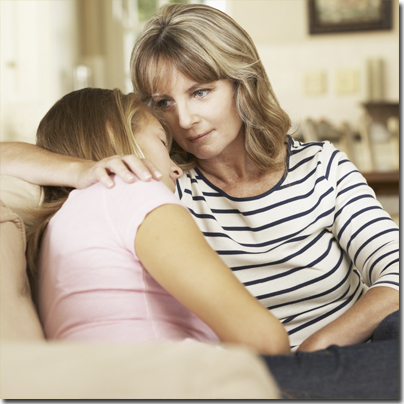 A recent survey performed by Deseret News and Brigham Young University reveals that the three biggest fears parents have for their teenagers today are technology, bullying and poor mental health.
A recent survey performed by Deseret News and Brigham Young University reveals that the three biggest fears parents have for their teenagers today are technology, bullying and poor mental health.
(I bet you expected it to be sex, drugs and rock and roll! That was apparently just the fear for my generation!)
But the fact of the matter is that technology is here to stay and has been a dominant feature in the lives of kids today in a way it was not in previous generations.
Instead of fearing technology, it’s important to talk to kids often and early about how to use technology responsibly. As parents, we get to make the rules of technology usage for the devices we give our kids. There are stats and apps you can install to alert you if internet searches or texting starts to expand beyond the rules you put in place. Besides, you pay that cell phone bill!
I feared the “technology” of driving for years before it actually happened. What quelled my fears was research and planning. I enrolled my son in an accredited driving course and rode with him for about a year, observing his progress while he obtained his practice hours. We agreed as a family he would get a license at 17 because we thought it was appropriate and reasonable for our current lifestyle.
Do I fear him driving now?
 To my surprise, not as much as I thought I would! I just had to remind myself I was afraid of driving because it was brand new, so we rolled out driving in phases: allowing him to drive nearby to well known places at first and then expanding the distance and complexity of the driving area. As his confidence and experience grew, our fears faded.
To my surprise, not as much as I thought I would! I just had to remind myself I was afraid of driving because it was brand new, so we rolled out driving in phases: allowing him to drive nearby to well known places at first and then expanding the distance and complexity of the driving area. As his confidence and experience grew, our fears faded.
Parents during these years are also concerned about things like bullying and general mental health and development.
It’s so important to keep the lines of communication open. Sometimes simply sharing your experience may be what your teen needs to hear. Just knowing that you understand what they are feeling and that things will be okay can chase a bad day away.
Lead conversations with love, concern and support, and just let them talk — you may be surprised what they share if they know they will not be judged or punished or blamed!
My son recently commented during one of our chats that any thought he had of trying anything “crazy” or “rebellious” was never seriously considered because he knew we would be alerted almost immediately! We have always been upfront about employing common monitoring aids: everything from a “find my phone” app to screen time controls and online search filters.
Did these monitoring aids act as deterrents? It appears so, and what’s more, my son uses the “find my phone” app to track me so he knows just how much longer he can play his Xbox before I get home!
The teen years really do seem like a blur because so much happens in such a short time. The key really is, again, observation, communication, setting clear expectations, deterrents and sometimes negotiation.
Listen to your kids’ wishes and concerns as much as you share your own. They will surprise you with their level of understanding.
But again, you know your kid better than anyone, and when you need more help, it’s okay to seek it out!
Young Adults and Parental Fear?!
 In a perfect world, young adults don’t need “traditional” parenting anymore, but it’s interesting to note that young adults have a lot to say about how they are treated by their parents, and that a parent’s fear doesn’t go away just because your kid turns 18!
In a perfect world, young adults don’t need “traditional” parenting anymore, but it’s interesting to note that young adults have a lot to say about how they are treated by their parents, and that a parent’s fear doesn’t go away just because your kid turns 18!
According to Dr. James Dobson, when he asked people about the greatest problems they face in dealing with their parents or in-laws, 44 percent of letters he received were from adults who reference a “failure of older adults to let go.”
Why do some parents have a hard time treating their adult children as equals who are capable of caring for themselves and leading their own lives?
I experienced being raised by an overprotective parent who could not let go. I learned that this parenting tendency comes from a mixture of fear and loss.
Fear of the eternal “danger lurking around every corner” scenario, and loss of control and missing the feeling of being needed all come into play.
I believe that most parents act from a place of love, and if adult children recognize this and try to give their parents some grace, much can be achieved. But parents also have to take responsibility for respecting their adult children and finding ways to accept the change in their relationship as their kids get older.
Communication goes a long way in building mutual understanding and mutual respect, and this applies to every age of child and every age of parent.
Back to the Beginning
So, what does it feel like to be nearing the “finish line”?
What I realize is that it’s not the finish line. It is actually just another beginning in the “long game” of parenthood. It’s another new adventure full of possibilities, rewards and learning opportunities for all parties concerned.
My parenting days are not over, just changing…again. So it’s time for me to take my own advice:
- Always lead conversations with love.
- Listen more than speak.
- Seek information to make rational decisions.
- Communicate, communicate, communicate.
- Remember, great parenting is learned.
The 2-Minute Action Plan for Fine Parents
Ask yourself some guiding questions:
- Are you letting fear hold you back from allowing your kid to take part in the same type of activities as their peers?
- Are you over-involved or over-extended with your child’s activities, performance and outcomes?
- Is your anxiety causing your child anxiety?
The Ongoing Action Plan for Fine Parents
Remember, it’s never too late to improve relationships, even if it takes a long time and a little therapy!
In addition to the resources on this site, there are books, podcasts and classes available online and in your city to help with all sorts of parenting and life skills topics to meet your specific needs.
Plan ahead for the next developmental stage your child is entering. Examine what they will need to grow and develop. Having a plan in place will not only set you up for success but also quell anxiety.
There are many parent groups that meet at schools and online, like the PTA, Boy Scouts, Girl Scouts, Watch Dogs and others, which bring parents of similar-aged kids together and are great places to network with other parents.
This piece is truly illuminating about positive parenting. At the end of it all, no matter what the statistics say, the real message is mutual understanding and love. Love knows no barriers, and every fear can be extinguished with it. The moment we realise this, not only can we be good parents, but also good citizens of the world.
I agree- it is hard to see the line sometimes but being aware and questioning yourself is a great technique to discover if your anxiety is at a “normal” level or exaggerated.
Yes, I think every parent experiences this! And it can’t be easy.
I don’t always see the line between caring for children and fearing for their lives for no reason. But I try to be aware of how I feel and not forbid my children to do something just because of my fear.
Thank you! This is a very enlightening article for me.
Hi- simply add your email address to the red box above!
Thanks
Laura
Please send me the link to the mini course